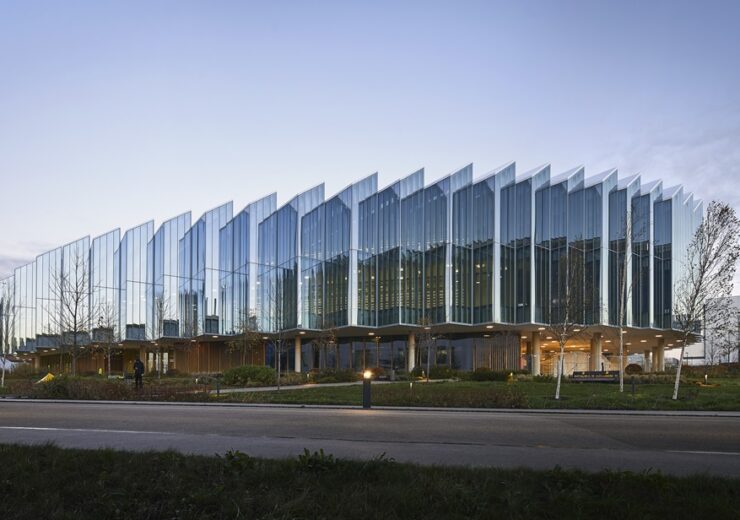The transaction complements AstraZeneca’s oncology portfolio with Fusion’s pipeline of RCs, including its lead programme FPI-2265, and replaces the traditional chemotherapy and radiotherapy with more targeted treatments

The Discovery Centre (DISC) Exterior. (Credit: AstraZeneca)
UK-based pharmaceutical firm AstraZeneca has agreed to acquire Fusion Pharmaceuticals, a Canada-based biopharmaceutical company focused on next-generation radioconjugates (RCs).
Under the terms of the agreement, the British drugmaker will acquire all the outstanding shares of Fusion for $21 per share plus a non-transferable contingent value right of $3 per share.
The upfront cash portion of the consideration represents a transaction value of $2bn, which is a 97% premium to Fusion’s last closing share price of $10.64 on 18 March 2024.
As part of the acquisition, AstraZeneca will assume the cash, cash equivalents and short-term investments on Fusion’s balance sheet, which totalled $234m as of 31 December 2023.
The transaction is expected to be completed in the second quarter of this year, subject to customary closing conditions, including regulatory approvals and of Fusion shareholders.
Upon completion, Fusion will operate as a fully owned subsidiary of AstraZeneca, with operations continuing in Canada and the US.
Fusion CEO John Valliant said: “This acquisition combines Fusion’s expertise and capabilities in radioconjugates, including our industry-leading radiopharmaceutical R&D, pipeline, manufacturing and actinium-225 supply chain, with AstraZeneca’s leadership in small molecules and biologics engineering to develop novel radioconjugates.
“Expanding on our existing collaboration with AstraZeneca where we have advanced FPI-2068, an EGFR-cMET targeted radioconjugate into Phase I clinical trials, gives us a unique opportunity to accelerate the development of next-generation radioconjugates with the aim of transforming patient outcomes.”
Fusion is engaged in developing RCs, with a clinical-stage development portfolio comprising its lead programme FPI-2265, currently in Phase 2 trials, and other RCs targeting solid tumours.
FPI-2265 targets prostate-specific membrane antigen (PSMA), a protein that is highly expressed in metastatic castration-resistant prostate cancer (mCRPC)
RCs emerged as a promising modality in cancer treatment, which delivers a radioactive isotope directly to cancer cells using molecules such as antibodies, peptides, or small molecules.
The approach has several advantages over traditional radiotherapy, including reduced damage to healthy cells and access to tumours not reachable through external beam radiation.
AstraZeneca said that the proposed acquisition will transform cancer treatment by replacing traditional chemotherapy and radiotherapy with more targeted treatments.
The transaction complements its oncology portfolio with the addition of the Fusion pipeline of RCs, including its lead programme, FPI-2265.
It brings new expertise, R&D, manufacturing, and supply chain capabilities in actinium-based RCs, and strengthens its presence in Canada, said the British drugmaker.
AstraZeneca Oncology R&D executive vice president Susan Galbraith said: “Between thirty and fifty per cent of patients with cancer today receive radiotherapy at some point during treatment, and the acquisition of Fusion furthers our ambition to transform this aspect of care with next-generation radioconjugates.
“Together with Fusion, we have an opportunity to accelerate the development of FPI-2265 as a potential new treatment for prostate cancer, and to harness their innovative actinium-based platform to develop radioconjugates as foundational regimens.”
Recently, AstraZeneca has agreed to acquire Amolyt Pharma, a France-based clinical-stage biotechnology company focused on developing novel treatments for rare endocrine diseases.
